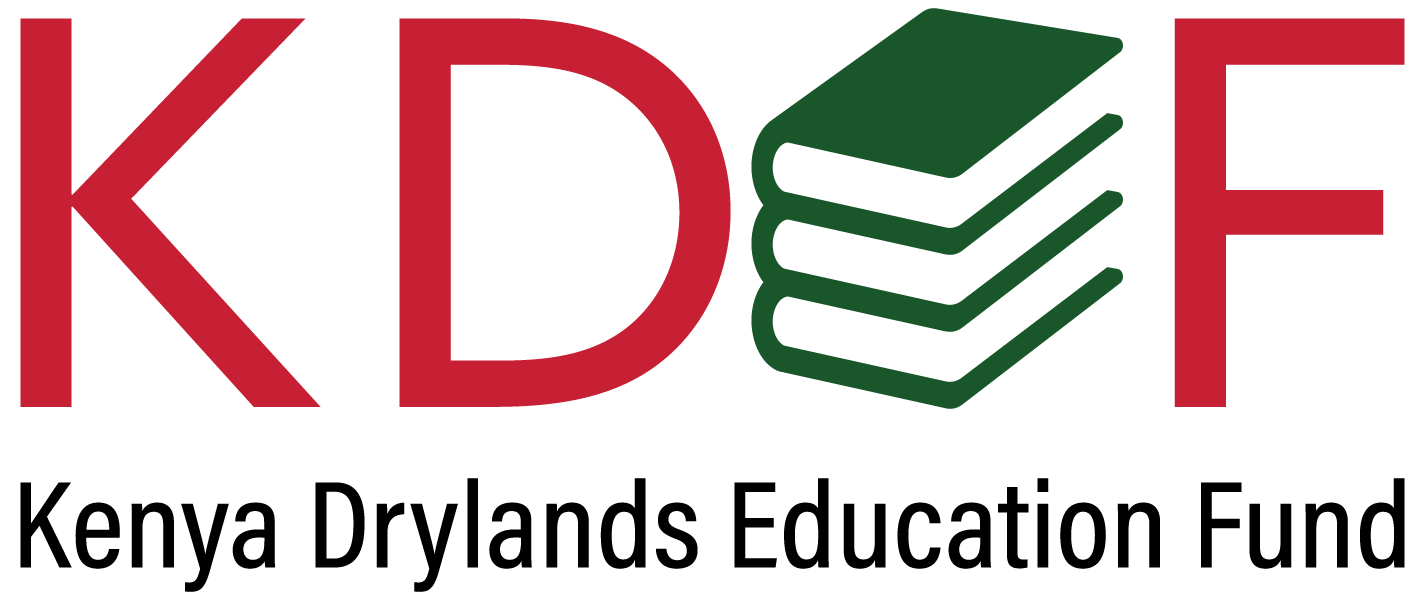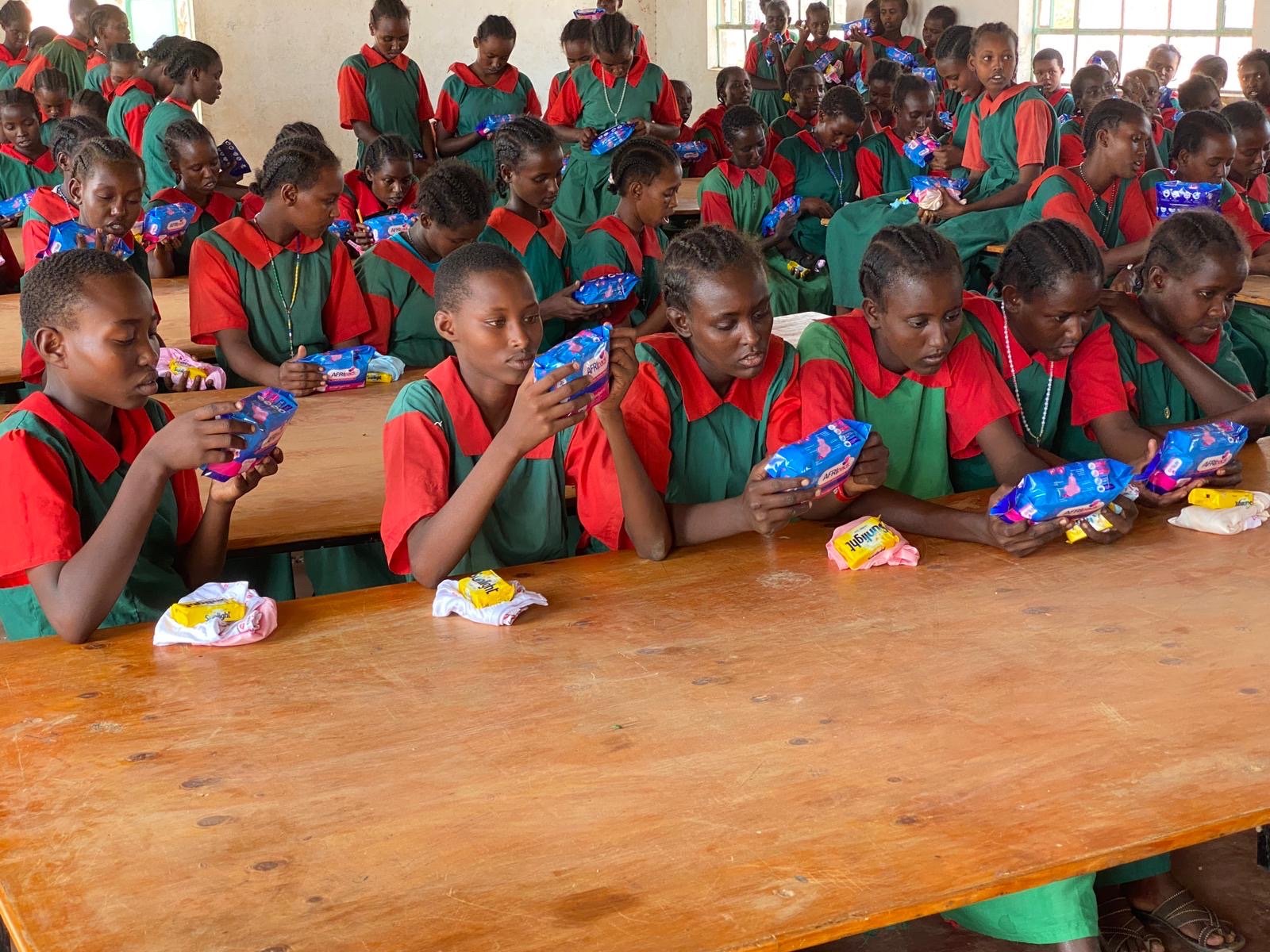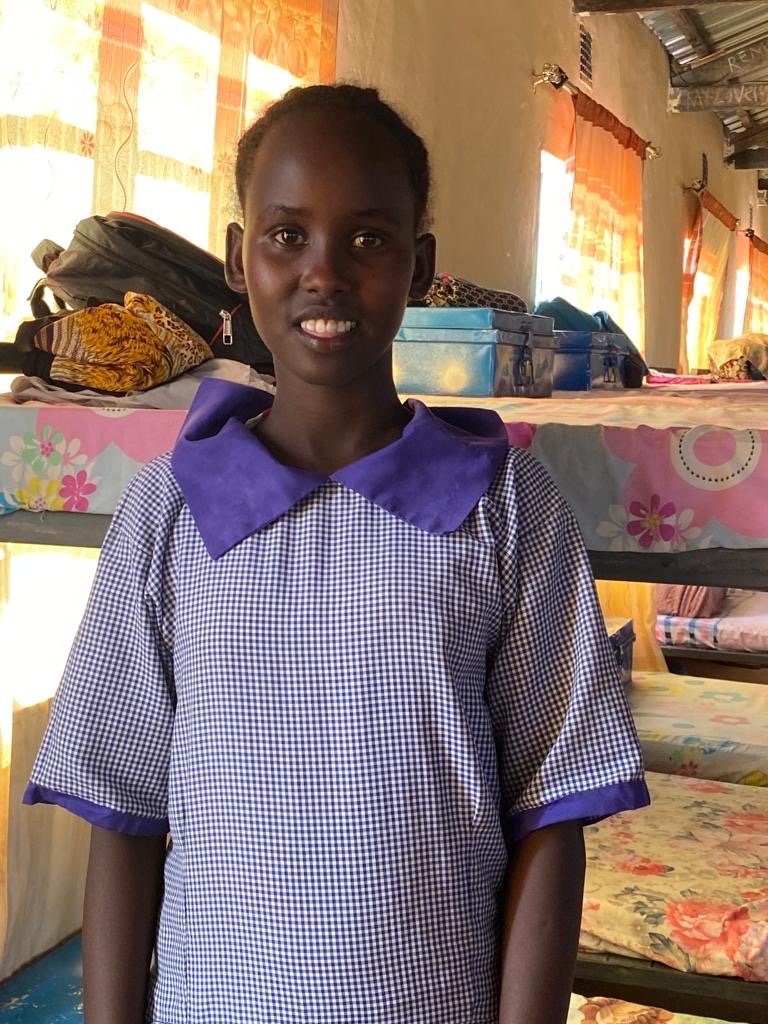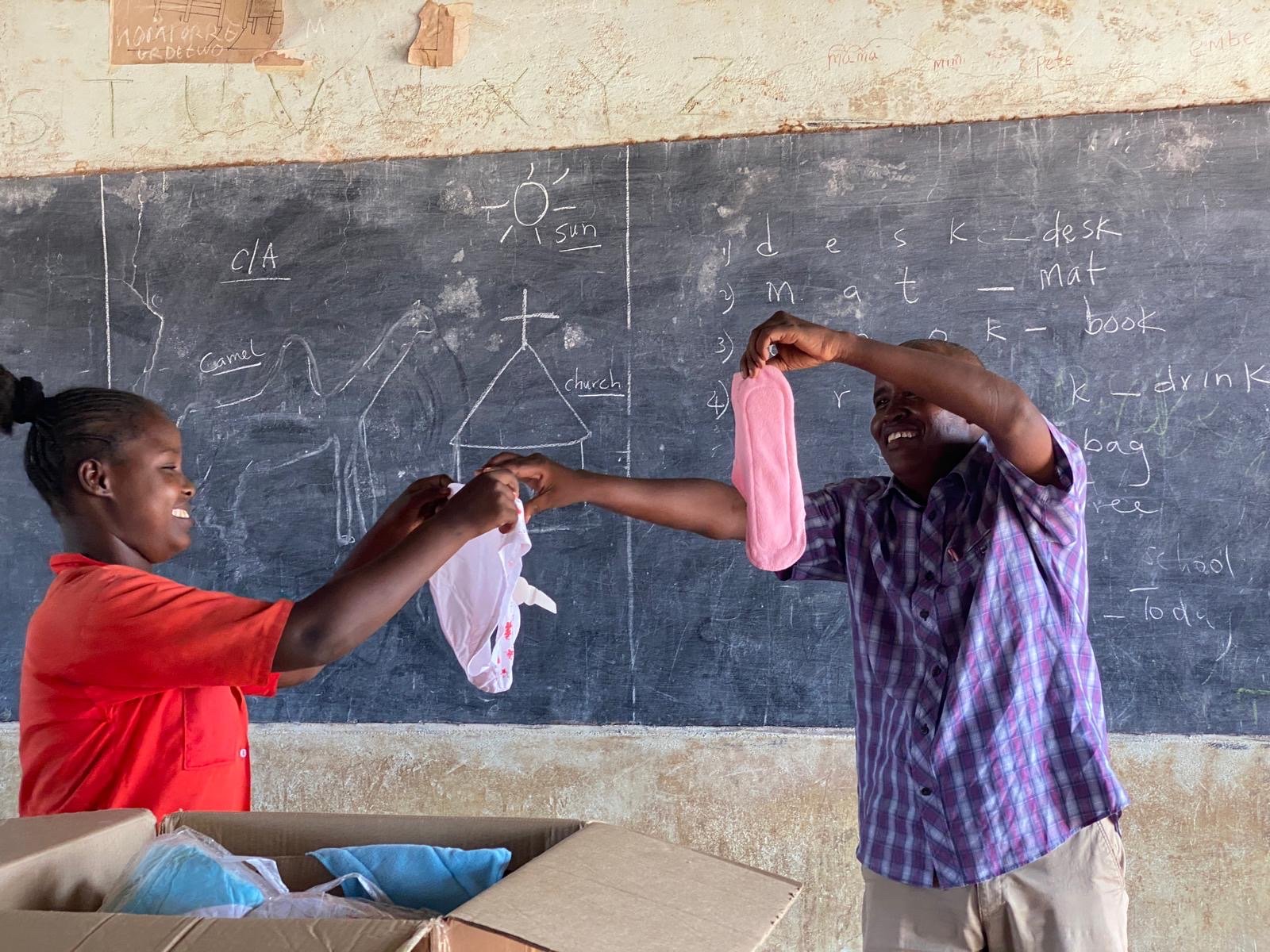Overcoming Period Poverty, Stigma and Shame
Menstruation is a natural process and a sign of reproductive health, yet in Kenya it is taboo and perceived as shameful and considered utterly private in most households. Girls' lives are disrupted during their periods as they can no longer sit or walk in comfort; they live in constant fear, feeling ashamed of their natural flow.
When Fridah Learamo, a sixteen-year-old from Ngurunit Primary School, got her first period, she was so scared because she had no idea what was happening to her—she thought she had hurt herself. The sight of too much blood made her fear that she was dying. Terrified, she stuffed bits of cloth and cotton inside her body to stop the bleeding. Too frightened to tell her mother what was happening, Fridah spent the next day in school terrified blood would leak out, exposing her to ridicule from her classmates.
That day she paid less attention to her classwork, and instead she spent a lot of time in the washrooms to ensure that she had not stained her uniform. Many girls in Kenya go through this same issue, and they have no one to talk to about their first period and often miss school entirely during their monthly menstruation cycle.
Malimali Segelan from Faith Primary School in Marsabit would stay at home for four or five days until her periods stopped, which deprived her of a quality education. Missing classes eventually leads to many girls dropping out of school entirely, perpetuating the cycle of illiteracy and poverty.
Many households in the drylands of Kenya cannot afford sanitary pads. Their wages from work can only get them immediate needs like food, and no money is left to buy sanitary pads. The situation is so dire that girls will use scraps of fabrics to stop the bleeding. This fabric not only burns, stings, and irritates their skins, but it also leaks and soils their uniforms. Some girls even consider having sex with men just to get money to pay for sanitary pads.
While menstruation is a normal bodily function, girls are told to keep it a secret when they begin menstruating. This attitude promotes “period stigma,” and as a result, girls grow up considering periods shameful and embarrassing. Many teachers are also uncomfortable talking about or teaching menstruation, so girls are not taught the basic information about reproductive health. As a result, girls do not understand what is happening to their bodies during menstruation.
In addition, lack of access to clean toilet facilities at home and at school is a constant source of worry and stress. Schools do not have separate bathrooms for girls with doors and locks for privacy. In the Drylands of Kenya, water is scarce, and girls from these communities use reusable cloth pads and wash the pads with contaminated water, resulting in a higher risk of urinary tract infections.
To restore girls' dignity and to keep them in school, KDEF works with communities in the drylands to improve access to toilets and water at school and home. Under their menstrual hygiene program, KDEF distributes menstrual hygiene products, including reusable sanitary pads, knickers, and soap. KDEF also holds training on menstrual hygiene management to girls at the menstruating age in primary schools.
To date, KDEF has distributed 15,000 reusable sanitary pads to 40 primary schools in the drylands of Kenya, constructed 24 twin toilets, and built rock catchments. KDEF continues to supply water to schools and villages with the KDEF water truck. During the menstrual hygiene conversations, KDEF engages and trains both the male and female teachers on menstrual hygiene management. Engaging men and boys in the conversation helps to eliminate stigma and shame, building confidence in girls and encouraging healthy habits.
“I am happy because my girls are taken care of by KDEF. The absence of proper sanitary products causes them to miss school during their menstrual period. They fear leakage and messing up, which in turn attracts teasing from other learners. To avoid this, girls opt to miss school, and some drop out. With the provision of menstrual kits by KDEF, girls’ health, attendance and academic performances have improved because girls are retained in school. " - Amina Abdi, Headteacher, Loglogo Primary School.



